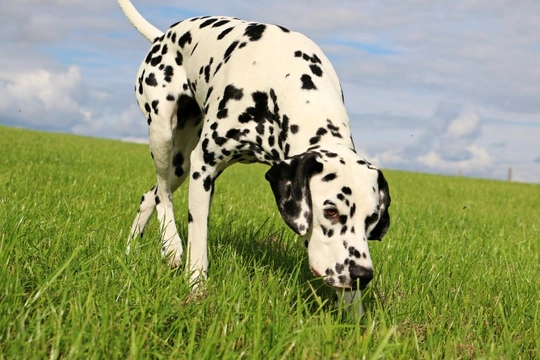
Can a dog lose their sense of smell?
When it comes to the senses of dogs, their sense of smell is the sense they rely upon the most, far above their eyesight and hearing. This is something that can be challenging for us as humans to understand given how weak our own senses of smell are compared to that of dogs, being as we tend to rely upon our eyes for information much more than we do our noses!
Even a dog that has lost their eyesight or hearing will tend to cope perfectly well with some adjustments and consideration, because these secondary senses, while important, are not the core of the dog’s interaction with the world. This is on a par with how we as humans would cope without a sense of smell-we would certainly miss some cues, and our appreciation of food would diminish too, but such a loss would not be crippling-after all, we do not lose the ability to function when we get a cold and blocked nose!
For a dog, on the other hand, losing their sense of smell is a massive change for them, and can be compared to the impact it would have on a person to lose their vision. Losing one’s sense of smell permanently (rather than simply due to a temporarily locked nose) is not hugely common in dogs, but when it does occur, it is life-changing, inhibiting their ability to read and respond to the world around them and affecting virtually every element of their lives.
But why might a dog lose their sense of smell, and does their sense of smell change over time? In this article, we will look at some of the things that can cause a dog to lose their sense of smell, and how this can affect them. Read on to learn more.
Variations in scenting acuity
All dogs have a much better sense of smell than we do, having a great many more scent receptors on and in their nose than humans as well as having a much larger part of the brain dedicated to interpreting and processing smell.
However, the scenting ability of dogs can vary a lot from breed to breed, with the best of the bunch leaving all of the others standing-like the bloodhound, whose sense of smell is highly acute and detailed, paired with the dedication and drive to keep on chasing the scent until they are exhausted, even through highly adverse conditions.
However, all dogs rely upon their sense of smell above all others, and even minor fluctuations or partial loss of scenting ability will have an acute effect on the dog. A bloodhound whose sense of smell is fading will likely still have better scenting skills than the average pet dog, but they will feel even a minor loss of smell very acutely.
Temporary changes and fluctuations
Your dog’s scenting ability is something that is in a constant state of flux, changing according to their health, the seasons, and even within the same day.
To get a large but short-term boost to their sense of smell, all your dog needs to do is wet their nose by licking it-and after your dog has been asleep and their nose has dried out a little, the scents around them will be rather muted until their nose is moistened again.
Seasonal changes such as spring and summer can also affect how your dog scents things-pollen in the air will both accompany other scent inputs, and potentially, lead to inflammation of the nasal passages in dogs that are sensitive to it and suffer from allergies.
A cold, blocked nose or anything else that affects the nose and throat of the dog will also temporarily affect your dog’s sense of smell, as will other health problems that may not be related to the nose at all!
Scenting ability changes over time
When a puppy is born, their sense of smell is already strong but their brains have not yet built up a large library of scent references, a process that takes a lifetime. However, by the time the dog reaches their first birthday, their minds will hold memories of millions of different scents, and this library will be added to virtually every day of your dog’s life.
However, as dogs reach maturity and old age, their scenting acuity, like their other senses, will begin a subtle and gradual decline, meaning that the dog’s sense of smell will actually become less acute as they age, although the degree to which this occurs will again be highly variable from dog to dog, and often subtle.
Permanent, full loss of scenting ability
In rare cases, dogs may lose their entire scenting ability permanently and in full, such as as a result of chronic, long-term allergies that caused inflammation and irritation of the nose to the extent that the dog’s scenting receptors became permanently damaged.
Damage to the cilia-the tiny hairs on the inside of the nose that catch scent particles-can also lead to either a full or partial loss of scenting ability, as can any form of surgery on the nose and throat.
However, the most common cause for loss of scenting ability in dogs is damage to the part of the brain that stores and processes scent and scent memories-the olfactory nerve, which lies along the part of the brain above and behind the dog’s nose and muzzle.
This could occur due to a head injury or impact, or as a result of any condition that leads to inflammation or damage to the brain, such as certain viruses, cancers and so on.
Damage to the olfactory nerve means that while your dog’s nose will still pick up scents, the brain has no way of processing them, rendering them meaningless for your dog.



